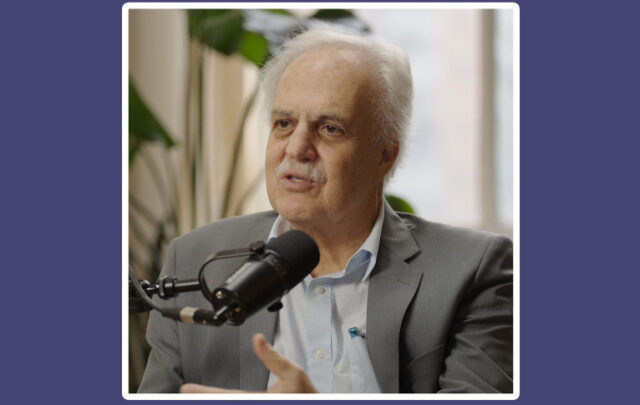There is an old joke about a tourist in Ireland who asks a local for directions to Dublin. The helpful citizen replies: ‘Well, if I were you, I wouldn’t start from here’.
The subtle wisdom therein is directly applicable to the world’s approach to mitigating the climate crisis. What if the world had got busy in response to James Hansen’s oft-cited 1988 scientific warning to US Congress? Instead, global carbon dioxide emissions grew by 60% since 1990. It is why the IPCC has been telling governments – without any sense of incredulity – that keeping the 1.5°C temperature goal within reach, means global greenhouse emissions peaking by 2025 and then – wait for it – falling by almost half come 2030.
Such a target was – and remains – so ridiculously implausible that a whopping 96% of world-leading climate scientists, who responded to a 2022 survey by Nature journal, dismissed the likelihood of realising the 1.5°C goal by 2100.
The outright implausibility of meeting global climate commitments, has even persuaded a few influential types to break ranks. These number a former IPCC chair, a one-time UK champion of green capitalism, and a billionaire software developer. In January this year, the latter – Bill Gates – stridently informed podcast royalty Alistair Campbell and Rory Stewart, that a 2°C+ rise is a certainty but that it was really 3°C degrees we should worry about. Unless, he added, you’re poor and without savings.
So, there you have it: the twin temperature goals of the Paris Agreement are already obsolete, and the world is careering towards the non-linear danger zone that scientists say lurks above 1.5°C of warming. Clearly, not everyone shares the Microsoft co-founder’s benchmark for global safety. Professor Johan Rockström for one – a world-renowned climate scientist – has referred to 1.5°C as a ‘planetary boundary’.
You might think that the mass sharing of even some of the above might be a good idea. Not least because the ramifications – however uncertain – are baked-in and global. But no, that would – it is claimed – cancel out hard fought public support for climate action by turning a concerned populace into navel gazing doomists.
Such a view is not just confined to opinion but is backed up by academic research. By way of example, the co-author of a recent paper published in Science Advances concluded that ‘doom and gloom’ messages can ‘demoralise the public into inaction’ and ‘even backfired when it came to more effortful behaviour’. And the proxy used for pro-environmental behaviour? ‘Effort dedicated to planting trees’.
At the risk of straying from the compassionate confines of non-violent communication, planting trees as pro-environmental behaviour: really???!!! No wonder the same researcher concluded ‘when faced with the enormous stakes of the climate crisis, individual-level actions might seem futile’. Yes! That’s surely a rational response to a wholly inappropriate call to action.
I mean, a forty-year-old working in the UK today could expect to be drawing their pension against a backdrop of climate refugees reaching into the hundreds of millions. Good luck booking the retirement safari.
It begs the question what justification can there possibly be for withholding a more realistic rendering of pledged climate action from the very citizens its impending failure will necessarily impact?
But this is exactly the state of play. It’s not just oil companies whispering sweet nothings into the ears of the public and world leaders. It is practically every public facing messenger spanning academia, environmentalism, journalism, politics and business. By not levelling with the general public, they all engage in disavowal of cultural proportions.
This matters because people reasonably want to believe what these messengers are saying (particularly trusted ones), in order to service their own disavowal when confronted with the climate crisis. Polling commissioned by my own initiative PeopleGetReal.org, revealed 51% of UK adults still believe ‘there’s just enough time’ for the IPCC’s topline: ‘urgent climate action can secure a liveable future for all’.
Admittedly, the polling showed the same majority doesn’t believe governments will deliver on such urgent action. In cultural terms, however, both audience and messengers are locked in something akin to codependency, a mutually assured protection from the reality of our collective predicament.
It is why no matter what reality throws at it (record land & sea temperatures, delaying emission reduction targets, expanding oil exploration), the mainstream climate change narrative continues to defy gravity, sheared as it is of reckoning and loss. Fairytales impart more truth about existence. As such, the prospects for meaningful climate action – whatever that might be – remain dire.
Looking up
You might be surprised to read that it needn’t be this way. Such optimism, if you will, has its roots in prioritising the role of the audience – as opposed to the messengers – in trying to bring about a more realistic telling of climate action.
As has been pointed out to me by academic and psychotherapist, Professor Josh Cohen, the general public is in ‘looser contract’ with the climate crisis than say its messengers, for whom maintaining status and livelihood are inextricably bound up with reinforcing the existing narrative.
Indeed, the aforementioned polling showed over one in five UK adults (21%) think ‘it’s now too late’ for urgent climate action to secure a liveable future for all. This equates to over 10 million people. Far from wanting to ‘rescue’ them from doom and gloom, PeopleGetReal.org is wondering whether this early adopter-shaped audience might be engaged as trailblazers for seeing through the mainstream narrative?
In particular, we wonder whether engaging them as already part of the solution (i.e. getting real), may not only feel counterintuitive but also locate agency around helping other citizens arrive at the same reckoning? A citizen-led reality-check of implausible climate targets would provide hitherto absent bottom-up permission for trusted messengers to also ‘get real’. Such a vision would help isolate the fossil fuel lobby for example, the greatest beneficiary of us staying wide awake in dreamland.
At the very least, attempting to answer these questions might finally dispense with the polarising binary of a fear-based or optimistic approach. Getting real surely insists on the best of both.
*Marc Lopatin is a co-founder of PeopleGetReal.org which seeks to encourage a citizen-led reality check of major climate targets.
*Download the report at www.peoplegetreal.org/downloadsurvey/





